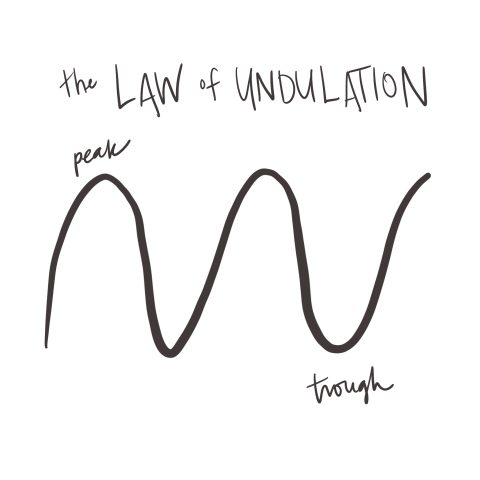Being in the present means fully immersing oneself in the current moment, without dwelling on the past or worrying about the future. It involves engaging all senses and emotions with the immediate experience, fostering mindfulness and awareness.
Living in the present moment is essential for a fulfilling life because it allows us to appreciate life’s beauty, savor precious moments, and experience genuine happiness. By letting go of regrets and anxieties, we can reduce stress and increase contentment.

Embracing the present empowers us to make conscious choices, nurture meaningful relationships, and pursue our passions with clarity and purpose, leading to a more authentic and happy existence.
The Transience and Impermanence of Life
Life comprises fleeting experiences, like passing clouds in the sky. Fixating on our problems only magnifies their significance, leading to unnecessary distress. Embracing impermanence reminds us that challenges are transient. Instead, focusing on growth, gratitude, and seizing the present allows us to navigate life’s journey with resilience and a lighter heart.

What truly matters is what we do, our values, and our principles.
And in this article, we will explore how one can live in the present, appreciate what we have now, and be grateful for all that we have been endowed with.
The Art of Mindfulness
The art of mindfulness involves being attentive to the present moment, without judgment or attachment. It means observing thoughts, emotions, and sensations without getting entangled in them. Mindfulness encourages non-reactive awareness, allowing us to embrace our experiences with an open mind.
By cultivating mindfulness, we can develop a deeper understanding of ourselves, enhance our emotional well-being, reduce stress, and make conscious choices that lead to a more fulfilling and harmonious life.

Benefits of Practicing Mindfulness
Practicing mindfulness offers numerous benefits for our well-being, health and overall quality of life:
- Reduces stress and anxiety, promoting mental calmness
- Improves focus and concentration, enhancing productivity
- Boosts emotional resilience and self-awareness
- Enhances coping skills during challenging situations
- Increases empathy and compassion towards others
- Promotes better sleep patterns and quality
- Lowers blood pressure and supports physical health
- Encourages a positive outlook and increased life satisfaction
- Helps in breaking harmful thought patterns and cultivating a sense of contentment

Embracing Gratitude
Gratitude serves as a powerful path to success by shifting our perspective and fostering a positive mindset. When we practice gratitude, we focus on what we have achieved and the support we receive from others. This outlook boosts motivation, confidence, and resilience, propelling us forward toward our goals.
Grateful individuals are more likely to seize opportunities, build stronger relationships, and attract positive. By acknowledging and appreciating our successes and the contributions of others, we cultivate a mindset that breeds further accomplishment life satisfaction and fulfillment.
The Science Behind Gratitude
The clinical psychology behind gratitude reveals its trans-formative effects on the brain and positive thinking. Nonscientific studies show that practicing gratitude activates the brain’s reward system, releasing dopamine and enhancing feelings of pleasure and contentment.

Research by the Greater Good Science Center found that individuals who regularly practice gratitude experience increased levels of happiness by 25%. Moreover, MRI scans show that gratitude rewires the brain, strengthening neural pathways associated with positive emotions and reducing activity in regions linked to stress and anxiety.
As a result, the research shows that people who cultivate gratitude are more inclined to adopt an optimistic outlook, leading to a cascade of positive thoughts and emotions in their daily lives.
Letting Go of the Past
Human beings often hold on to the past due to various psychological reasons. The human mind is wired to,
- Seek familiarity and safety
- The desire for a sense of comfort in reminiscing about known experiences
- Think that past events as they contribute to one’s identity and a sense of self

This makes it challenging to let go of memories and this subjective well-being is jeopardizing many other factors in people’s mental health.
The mind’s cognitive biases, such as the negativity bias, make negative experiences more memorable, causing us to ruminate on them. This has a direct negative effect on mental well-being. The burden of holding on has to be addressed, as unhappy people will create an unhappy society.
Strategies to Release the Past
Here are some ways you can move on:
- Forgiveness
- Acceptance
- Self-Compassion
- Be conscious of your own thinking and actively reduce rumination
- Engage in therapy or counseling to process past traumas and emotions
- Cultivate self-compassion and forgiveness towards oneself and others.
- Actively create new positive experiences to counterbalance negative memories.
- Children can seek help from school counselors and private tutors
- Challenge cognitive biases by consciously focusing on positive aspects
- Set realistic goals and focus on personal growth and development
- Surround oneself with supportive and positive influences
- Embrace change as a natural part of life and see it as an opportunity for growth.
Overcoming the Fear of the Future
People fear the future due to its inherent uncertainty and unpredictability. The fear of the unknown can trigger anxiety and apprehension about potential negative outcomes. Additionally, concerns about not being able to control or cope with future challenges contribute to this fear.

To overcome this fear, individuals can practice mindfulness to stay grounded in the present moment, reducing future-focused worries. Setting realistic and achievable goals can instill a sense of direction and purpose.
How Tutors in Singapore Can Contribute
Social and psychological well being, and physical well being cumulative into what we call the overall well being of an individual. The parental figures in a child’s life include a good tutor in Singapore, in this day and age. An experienced tutor does not only teach a student to ace their final exams, but also cares about basic needs like emotional well-being, mental health stability, and self-assurance to keep going.

One to one tutoring is an excellent way to not only boost academic performance in students but also ensure that they retain their enthusiasm for learning and growth amidst setbacks and unexpected hurdles in life.
There are so many tutors in Singapore who are making a difference in students’ lives, so do consider home services if you think your child needs personalized teaching and a more positive outlook on education.
The Joy of Small Pleasures
The small pleasures in life are often overlooked gems that bring immense happiness and meaning to our days. From savoring a cup of warm coffee to enjoying a sunset, these moments offer a chance to pause and appreciate life’s beauty.
Treasuring these simple delights cultivates gratitude and mindfulness, leading to good mental health and greater overall happiness. Embracing the small pleasures enriches our daily experiences, providing a sense of contentment and fulfillment.

In a fast-paced world, cherishing these moments allows us to connect with ourselves and others, fostering deeper connections close relationships, and a more fulfilling life filled with abundant happiness. Just remember that a decade or so down the road of your life, you will give anything to get back the vitality and energy, motivation, and happiness that you have right now!
Pursuing Passion and Purpose
Pursuing passion and finding purpose in life is vital for personal fulfillment. Having a clear purpose gives direction and meaning to our actions, making us more resilient in the face of challenges.
Furthermore, finding purpose often involves making a positive difference in others’ lives, creating a ripple effect of goodness and fostering meaningful connections in other forms.

Knowing that our existence contributes to something greater than ourselves ignites a sense of significance and empowers us to lead purpose-driven lives filled with happiness, satisfaction, and a lasting impact on the world.
Aligning Actions with Values
Our actions need to bring us happiness and a sense of life satisfaction but not at the expense of others’ subjective well being. Authentic happiness comes from alighning your actions with the virtues and principles that you hold dear to you. Feeling happy has become almost a luxury in this day and age when most people are dissatissfied with their lives.
Find a purpose in your life, and work on it at this present moment.
Life is Like a Sinusoidal Curve
Life is a journey filled with both ups and downs. Challenges are inevitable and often test our resilience and adaptability. Embracing the ebb and flow of life is crucial for personal growth and development. Accepting challenges as opportunities for learning allows us to build strength and character.

By acknowledging the reality that there will be peaks and troughs, we can approach adversity with a positive mindset, finding valuable lessons in every experience. Instead of dwelling on setbacks, we should keep moving forward, knowing that each obstacle overcome brings us closer to our goals and shapes us into more resilient and compassionate individuals.
Conclusion
Living happily in the present is a profound art that holds the key to a fulfilling and purposeful life. It reminds us of the value of appreciating every breath we take and cherishing the precious moments that make up our existence.
By staying fully engaged in the present, we can embrace the joy of simple pleasures and the beauty of human connections. Moreover, it urges us to make a difference in the lives of others, lending a helping hand to those in need and giving back to society in meaningful ways. Each passing moment is a gift, and living happily in the present enables us to extract the utmost joy and meaning from our experiences.
